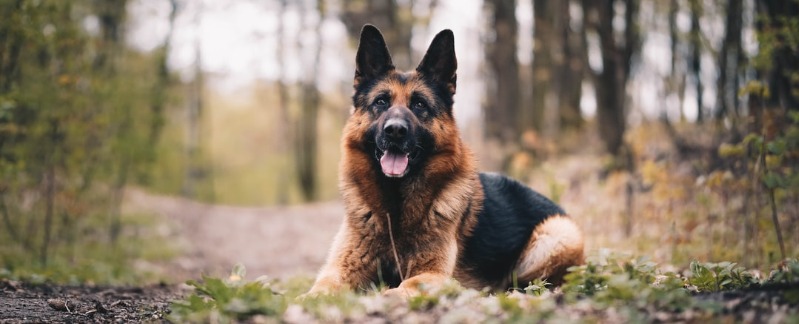German Shepherd Guide
Contents
The German shepherd is a popular and adored breed. This dog has many wonderful characteristics that entice you, but if you are unfamiliar with shepherds, you may be in for a shock. When a person buys a shepherd without knowing much about the breed, the experience is often unpleasant. Most shepherds are not “bad” dogs; they can make excellent companions. However, unless you understand what distinguishes a shepherd, you may misinterpret certain behaviors as flaws or problems.
Reasons NOT To Get A German Shepherd
The German shepherd is not a breed for everyone. This breed necessitates a significant amount of time and effort, especially during the dog’s first three years of life. Daily training, handling, and extensive socialization with all types of people and dogs are not optional if you want to be successful with this breed.
Shepherds, on the other hand, make excellent companions, competitors, and family pets when raised by those who understand the breed. The owner who understands this dog’s need for exercise, training, and mental stimulation is well prepared to care for a shepherd. This owner will be exposed to the breed’s intelligence, loyalty, and unwavering devotion.
German shepherds who do not have an outlet for their energy, on the other hand, can become destructive. The owner of a shepherd must be constantly vigilant to prevent the development of this trait. This dog also requires an owner who is willing to work on socializing her with all types of people and dogs and who is willing to continue this training throughout the dog’s life. If she is not constantly out and about, in the company of others, she may regress or become less outgoing and trusting.
This breed also necessitates a significant amount of training. Training not only keeps a shepherd mentally stimulated and manageable, but it also serves as a gentle daily reminder of who is the leader in the dog-human relationship.
When looking for a shepherd, the most important thing to look for is a dog with a great temperament. It is difficult to shape a puppy into the adult dog you desire unless you start with a puppy who has the ability to be a well-tempered dog. Due to the German shepherd’s rapid rising popularity decades ago, as well as his current position as one of the country’s most popular breeds, these dogs have suffered at the hands of breeders who are only out to capitalize on this popularity. Each year, many German shepherd pups are bred solely for appearances, resulting in some unusual temperaments.
Poorly bred shepherds are also prone to a variety of health issues. Even if you find a German shepherd with a good temperament, the dog may develop illnesses that necessitate costly treatment. Veterinary medicine is wonderful, but it has limitations.
These disadvantages may appear intimidating, but they are easily handled. This book will teach you everything you need to know about this popular breed, guide you through your research, and show you what to look for in a breeder and a shepherd. With a little knowledge, time, and patience, you’ll be ready to have years of fun with your new friend.
What You Need to Know
German shepherds, as one of the most popular purebreds in the world, share certain inherent qualities; however, there is a fairly wide range of variation. German shepherds are available in a variety of conformation types, coat lengths, colors, and sizes. Shepherds have a wide range of drives, athletic abilities, and temperaments on the inside. Understanding the positive and negative characteristics of German shepherds will help you decide if this breed is right for you.
Puppy or Rescued Adult German shepherd?
Both puppies and rescued adult dogs have their advantages and disadvantages. Depending on the qualities you seek in your new shepherd and the types of challenges you are willing to accept, either a puppy or an adult German shepherd may be appropriate for you.
Puppy Advantages and disadvantages
Puppies are adorable and cuddly, and their antics keep us entertained all the time. German shepherd puppies, with their fuzzy coats and expressive eyes, are one of the most enticing puppy breeds in the world. Aside from these obvious benefits, getting a shepherd puppy allows an owner to have a large influence on the dog’s development. The German shepherd puppy owner has the opportunity to shape and mold the dog into a model canine companion.
Young puppies, on the other hand, necessitate near-constant care and attention. They, like all dogs, must be housetrained, but they chew a lot and have a lot of energy. There’s also the “adolescent” stage that puppy owners must deal with, during which the “full-size shepherd with a teenager’s attitude” will present daily challenges to any owner.
A puppy is never a well-known being. You can improve your chances by buying a well-bred puppy from a reputable breeder; however, no one can ever guarantee how a puppy’s temperament will develop.
Raising a German shepherd puppy into a well-balanced adult is a time-consuming task that necessitates diligence, dedication, patience, and a significant financial investment (including first-year veterinary care, training classes, increasing collar and crate sizes as the puppy grows, toys, etc.). Choosing and raising a puppy, on the other hand, is a very rewarding and enjoyable experience.
Adult Shepherd
One of the most significant advantages of adopting an adult dog is that you know exactly what you’re getting. There’s no room for speculation. You know exactly how tall the dog will be, how much she will weigh, what type of coat she will have, how active she will be, and how well she will fit into your life. You’ll know if she’s housetrained (which many rescues are) or if you’ll need to work on that — and adults learn much faster than puppies.
Most importantly, you’ll be able to determine the temperament of the adult dog. To be sure, an adult dog may have some “baggage,” such as phobias, a lack of training, or social issues. If you work with a good breed rescue or shelter, the dog will have already been temperament tested and evaluated. You’ll be able to tell if the dog is sociable, likes children, and gets along with other dogs and pets.
Do adult dogs bond in the same way that puppies do?
In fact, many people who have raised a puppy as well as adopted a rescued adult dog report that the rescued adult forms strong bonds with her new owner. These dogs appear to recognize when they have been given a second chance at life.
Adopting an adult German shepherd comes with one caveat: you must work with a qualified German shepherd rescue or a shelter that offers extensive placement services. German shepherds do not kennel well as a breed, and as a result, the dog’s true temperament will not be revealed until the shepherd is removed from the noisy environment of the shelter. An experienced professional should always conduct this evaluation.
Coat Types
Within the German shepherd breed, there are three different types of coats to be found: the desirable double coat, the plush coat, and the longhaired coat. All of these coat types appear fairly frequently.
The correct “double coat” consists of a downy undercoat with an outer layer of longer, coarse “guard” hairs. Light rain does not penetrate the guard hairs easily and mud tends to dry and fall out of the double coat. This coat doesn’t need extensive care, but a weekly brushing keeps shedding manageable. Regardless, the coat does shed in spring and fall.
Plush coats are slightly longer, and, as the name indicates, are plusher in look and feel. This kind of coat is a fault (but not a disqualifying one) in the show ring. Longhaired coats may or may not have an undercoat and tend to be very soft. The silky, longhaired coats require more care to prevent matting and tangling. The long-haired coat can be quite beautiful, but it is a fault in the show ring. In fact, it is such an obvious fault that shepherds with this coat rarely — if ever — appear in the show ring. And despite its exotic look, this coat is not “rare” or worth more money.
Grooming
The German shepherd does not have extensive grooming requirements and is not considered a high-maintenance dog. If your shepherd has a double coat — hard guard hairs over a downy undercoat — he is quite literally a wash-and-go dog. Not all shepherds have a double coat, however, and at some point, regardless of your shepherd’s coat type, he will need a bath — not to mention regular brushing, toenail trimming, and other routine maintenance.




